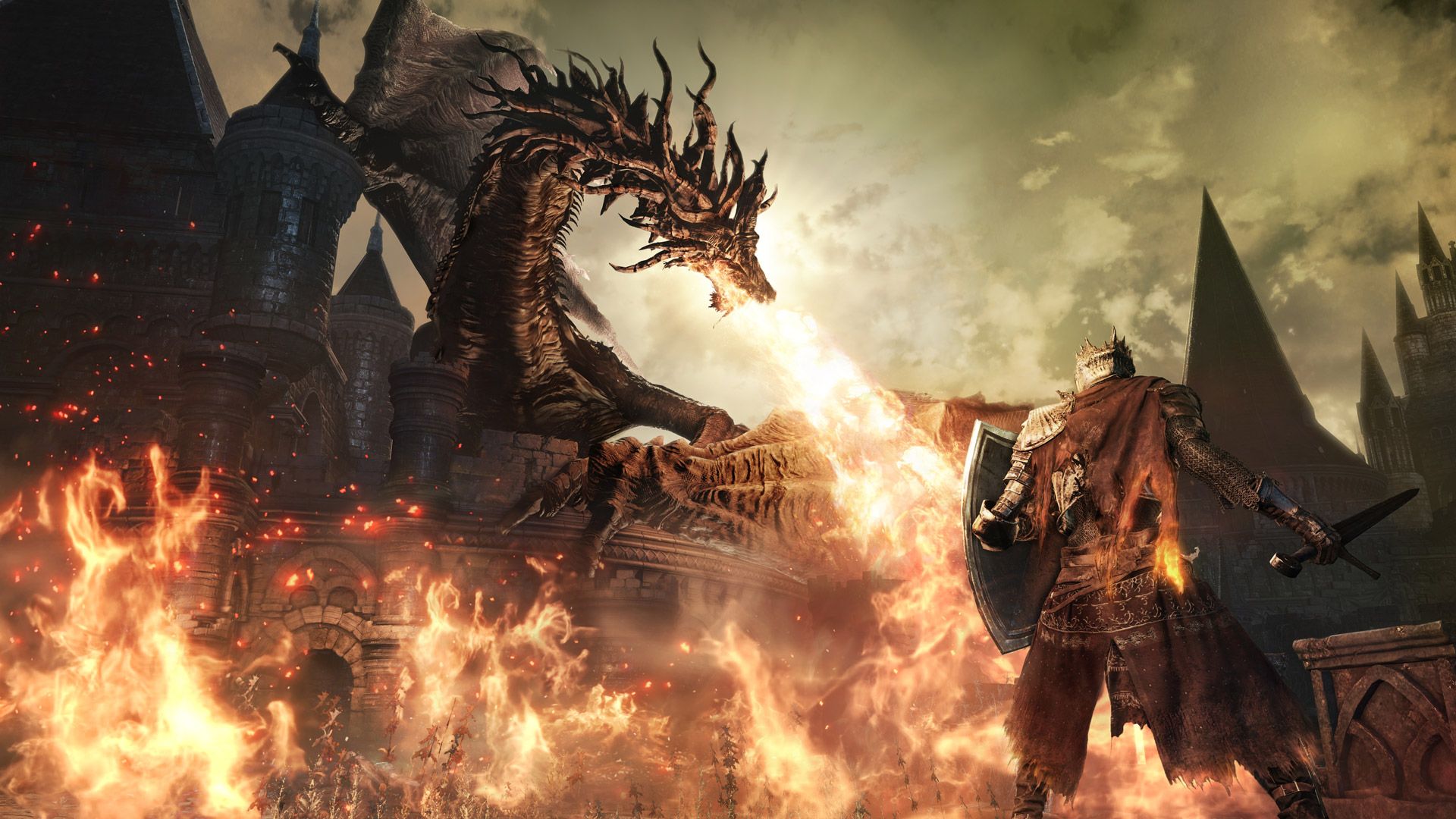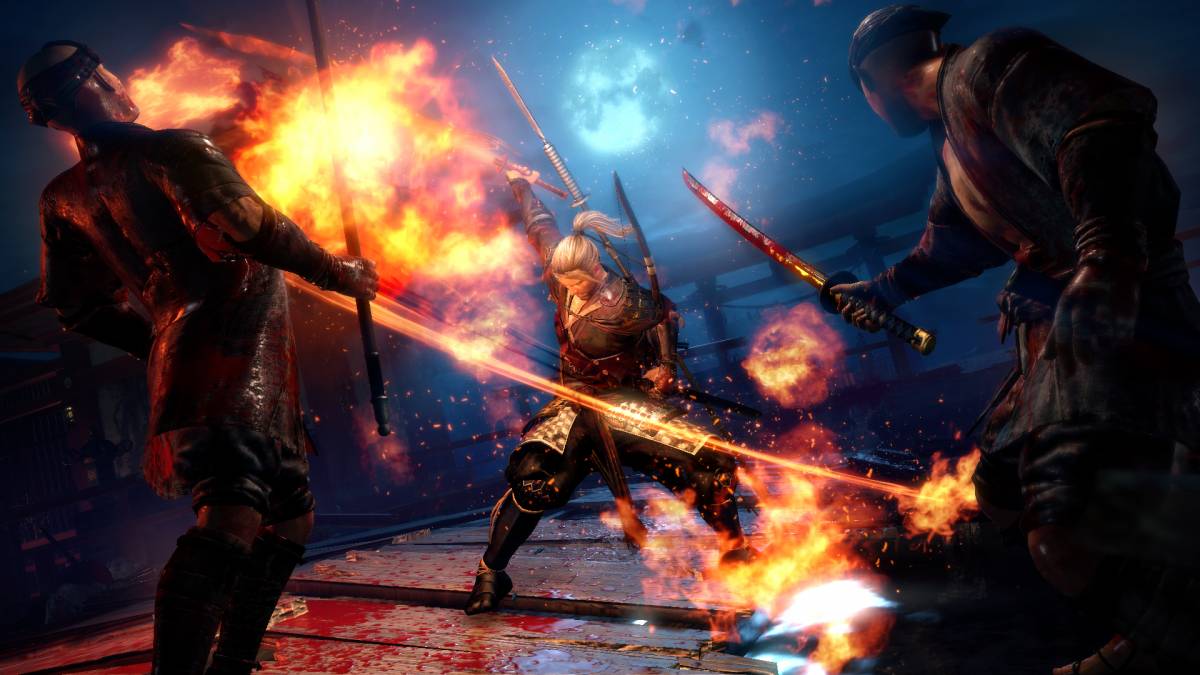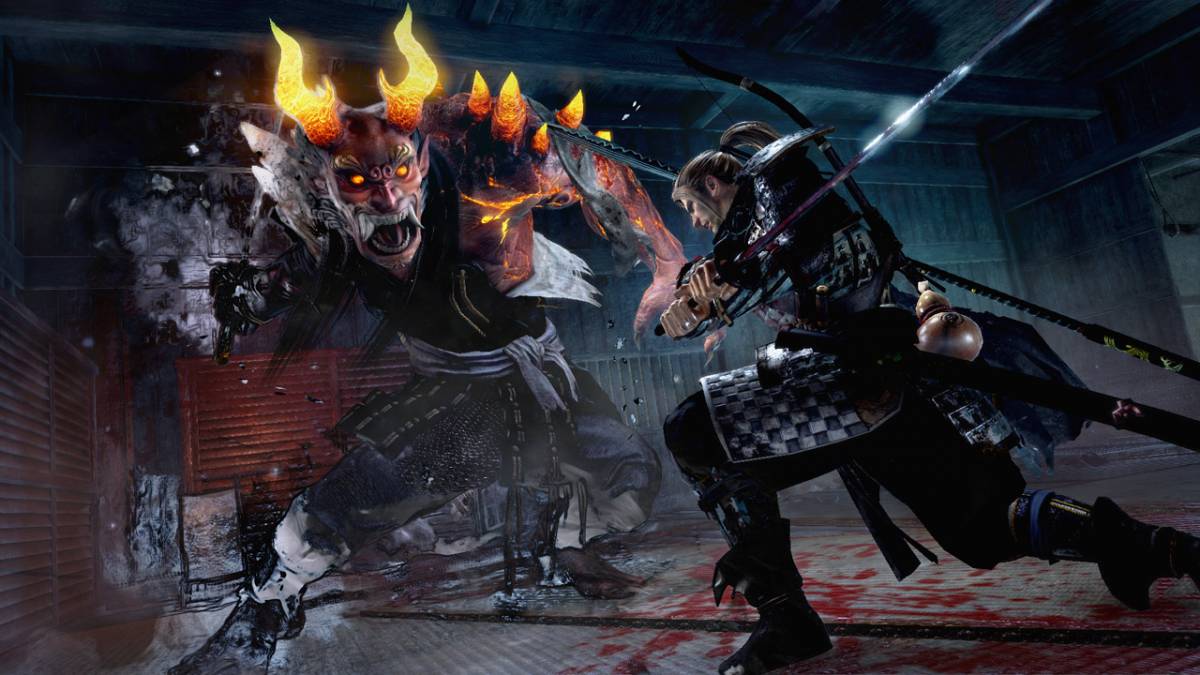Let’s see a show of hands from all those gamers out there who remember the explosion of first-person shooter games that were a result of the original DOOM’s success in the 90s. How about the RTS craze shortly after Warcraft II became the hottest game around? Wasn’t there an MMO explosion during the reign of Everquest? How about the countless Call of Duty rip-offs?
Video game trends are no different than other pop culture cloning that occurs in movies, literature, and music. This month, gamers were treated to the release of Nioh, a new action-RPG developed by Team Ninja for Playstation 4; Nioh is an obvious descendant of the beloved Soulsborne series by FromSoftware (Demon’s Souls, Dark Souls, Dark Souls II, Dark Souls III, and Bloodborne).
Countless reviewers have already noted the similarities between Nioh and From’s infamous titles, but Nioh offers several upgrades to gameplay mechanics. A mashup of Diablo III, Ninja Gaiden, and Soulsborne games, Nioh has received critical acclaim and may already be a frontrunner for Game of the Year awards.
With a depth of customization and combat strategy that is unparalleled for a game of its ilk, Nioh constantly rewards players with loot and skill upgrades, and the rush of adrenaline that accompanies a successful boss-slaying harkens to those hard-won victories from Soulsborne games and Ninja Gaiden; make no mistake, this game is challenging, and in many ways, an upgrade over its spiritual predecessors.

Japanese mythology and spirituality are the threads used to tightly weave the world of Nioh together; every detail feels authentic and important, and the enemies, in the vein of a true Soulsborne game, always have a chance to wreck your life if you decide to lazily button-mash. Instead of thinking about Soulsborne monsters, I often had flashbacks to the stomach-dropping dread I felt when I was regularly ambushed by black ninja trios me in Ninja Gaiden.
It’s hard to argue that Nioh is merely a half-hearted clone that attempts to capitalize on the Soulsborne franchise’s success. With far greater variety of combat strategies, customization options, and a richly-imagined world, Nioh is a treat for fans of the genre. There’s no reason for me to review the game, because the game has clear improvements; rather, I reflect upon one question that has kept nagging me since I began my latest grueling adventure.
Why don’t I love Nioh more than the Soulsborne games? Why do I feel that From’s games are still superior?

The depth of creativity and imagination employed by the Soulsborne designers is truly breathtaking. They have built a mythos from the ground up, including sprawling, ancient cities inhabited by terrifying creatures that defy the imagination; legendary heroes sacrifice themselves to protect dying demigods, and your avatar becomes part of a circulating mythos that each NPC seems to acknowledge with reluctance, resignation, or disbelief. Iconography, paintings, and lore—FromSoftware envisioned thriving cultures and their eventual doom.
To this day, I still remember the feeling I had when I found a stairway that led me back to Firelink Shrine in Dark Souls I, and then another shortcut that connected the entire game world. My character could walk from one end of the map to the other, a feat that the other Soulsborne games have attempted but could not master with the same sense of wonder.
Nioh certainly employs a beautiful and wondrous mythology—as someone who completed extensive research on Japanese history and culture to write a novel (Japanese Werewolf Apocalypse), I can appreciate Nioh’s universe. Any American media lover who claims to love Japanese lore is automatically going to raise eyebrows (“Don’t you mean you watch a lot of Anime and/or samurai movies, and you feel like you’re an expert because of it?”), but I genuinely love the immersive balance of history, culture, art, and imagination. It’s a small thing, but I am in love with the fact that most of the weapons have untranslated Japanese names.

However, I consider some prevailing images from Demon’s Souls/Dark Souls that I long for as I play Nioh:
Sunlight streams through the broken walls of the crumbling necropolis’s temples; haunted by the ghastly apparitions of knights who had given their lives for the cause of a corrupt king, the ruins are a testament to a dream of power that brought a kingdom to its knees.
Bloodborne:
Savage monstrosities—cursed by a horrific blend of madness and the meddling of a holy order that victimized the population it served in the name of worship to terrifying cosmic powers—reign in the nightmare of a once-thriving metropolis. Beasts howl into an eldritch night sky that seems as endless as the violent hunt that is the populace’s only respite from the scourge.
In the Soulsborne games, you awaken in the game world without any kind of instruction manual; there are people who may guide you with vague bits of advice that are seemingly nothing more than the ramblings of the insane, but you are a stranger, and you cannot run from the world’s dangers. You will die, and die again; the creed that defines existence is to struggle for some measure of victory that provides no promise or hope that the fight will end for you or anyone who comes after—or you may choose to succumb. FromSoftware’s gaming philosophy is a lot like life, even down to the idea that nothing of value is free, but rather earned through effort—trial, failure, and desire.
The Soulsborne games are extremely romantic and poetic in their approach.

Part of the charm that the Soulsborne series offers is the dedicated community. Gamers are constantly sharing their exploits, in addition to pet theories regarding the lore. Players who spend time piecing the story together are developing the narrative of their own game world. Nioh’s world is more clearly outlined for the gamer, which is something of a relief for gamers who feel the Soulsborne games provide your character with zero motivation to do anything at all. However, the importance of being able to establish your own need to complete a Soulsborne adventure cannot be underestimated.
Game Informer recently ran a story that reported on the criteria that prominent RPG developers consider for side quests, and a quote from Leonard Boyarsky, Diablo III’s lead designer, resonates with my feelings regarding the Soulsborne games: “Consciously or not, as someone plays a game they’re actually writing their own characters… Side quests are a way for players to fully realize these characters and tailor them to what they imagine inside their minds.” Boyarsky was discussing the importance of incorporating side-quests in RPGs in a meaningful way, but this same philosophy is apparent when we consider how Soulsborne players craft their own interpretation of the main narrative; without the help of a guide, we don’t often know what triggers the appearance of specific characters, or how we manipulate their specific “quests” over the course of the game.
In the same vein that DOOM influenced the development of superior games, I am impressed with the natural progression that Nioh represents, which itself will be a difficult game to top. We’ve seen open-world games like Witcher 3 establish a higher standard for questing that newer titles fail to improve upon or even live up to (I’m looking at you, Square Enix) and at the same time, we are not retroactively able to hate Mass Effect or Final Fantasy VII.
Nioh represents the natural evolution of a genre. If FromSoftware is truly going to focus their talents on other intellectual properties, Soulsborne fans will still have the itch to play the style of games they popularized. While Nioh is arguably a better game than any of the Soulsborne adventures, it’s hard for me to love it as much as I love the universe of broken dreams offered up by FromSoftware’s post-apocalyptic fantasies.
Some of the coverage you find on Cultured Vultures contains affiliate links, which provide us with small commissions based on purchases made from visiting our site.

